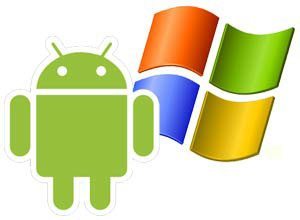Carriers and their customers who look forward to devices that can run both Android and Windows may be disappointed. Google and Microsoft reportedly agree that dual boot tablets are a potential threat, and have pressured Taiwan’s Asustek to delay its planned launch of the Transformer Book Duet TD300.
Image source: Keyables.com
Hybrid tablets could offer mobile users that best of both worlds, combining Android apps with the opportunity to use Windows for work. But Google can block access to its Google Play app store, so even though Android is open source, an Android device is much less valuable without Google’s cooperation. And Google is reportedly unwilling to cooperate if it means sharing space on the device with Microsoft.
“There is no burning business case to support a dual boot device for Google,” said Jefferson Wang of IBB Consulting. It makes sense that Google will pressure OEMs like Asus by deciding not to support Google Play (no access to apps) on these dual boot devices.”
Microsoft, for its part, is clinging to its dominant position in workplace software. As more and more on-the-job tasks go mobile, Android is a clear threat to Windows and for this reason Microsoft may have reconsidered its interest in Asustek’s dual-boot tablet.
Smartphones may be a different story. According to IDC, Android currently has 78% of the smartphone market, versus just 3% for Windows. So it would seem that dual-boot smartphones are clearly in Microsoft’s interest. The software giant is preparing to close on its $7.2 billion purchase of Nokia’s device business. At Mobile World Congress 2014, Nokia unveiled its first Android phone, the Nokia X. That phone is thought to be the culmination of a project that was underway at Nokia before Microsoft agreed to buy its device unit. Time will tell whether a Microsoft-controlled Nokia will negotiate with Google to launch a dual-boot smartphone.
Enterprises that buy smartphones for their employees may be interested in Windows phones because of interoperability with Windows desktops, and because they may offer better security. But many employees prefer Android phones because of the app ecosystem. A Windows/Android hybrid could be a solution for companies and their employees.
Huawei has backtracked on its reported plans to launch an Android/Windows phone in the U.S. during the second quarter. Microsoft is said to want HTC to add Windows to its Android smartphones, but those plans may also be on ice now.
Follow me on Twitter.

